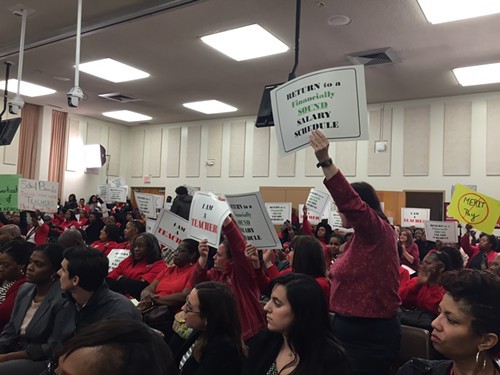
So far, the major appointees of Mayor-elect Jim Strickland seem an acceptable bunch. Like the members of his transition team, they are a mix. Appropriately enough for mayoral bridegroom Strickland, the old nuptial saying applies: “Something old, something new, something borrowed, something blue.”
The “something old” component, previously announced, includes several retainees: interim, now permanent, public works director Robert Knecht; general services director Antonio Adams; information services director Brent Nair; libraries director Keenon McCloy; executive director of workforce investment Kevin Woods; finance director Brian Collins; and Memphis Police director Toney Armstrong.
Among the “something new” appointees: Douglas McGowen as chief operating officer (COO), a new position; Bruce McMullen as city attorney; Alexandria Smith as human resources director; and Ursula Madden as chief communications officer.
Madden, a longtime news anchor for WMC-TV, Action News 5, also qualifies in the “something borrowed” category, inasmuch as she is a lift from the ranks of the media, a rival “estate” to government in Edmund Burke’s category of major societal divisions.
And “something blue” as a category applies handily to Armstrong, the head of city law enforcement whose tenure in office has in the past few weeks endured despite dismissive rhetoric by two mayors. A C Wharton made a premature announcement of Armstrong’s departure in the aftermath of the election that proved to be, in the old Nixonian-era term, “inoperative.” And Strickland’s persistent refusals during his campaign to commit himself to re-employing Armstrong were widely read (and apparently misread) as a vote of no confidence.
Indeed, it would almost seem that Armstrong himself — as resourceful in the politics of survival, it appears, as in his celebrated detective work (chronicled for a nation in TV’s 48 Hours) — has the major say in his professional destiny, including whether he will abide by his erstwhile, Wharton-era decision to retire in 2017 or keep on keeping on. The director is remarkably direct in his statements, keeping a sense of independence and an even keel, as when he spoke of the “logistical nightmare” he faced after cuts in police benefits played havoc with his forces. And who among us even remembers that group of restive police dissidents he identified as “the monsters” when he took over as director in 2001. Without much fuss or fanfare, they were simply subdued.
And, speaking of independent hands, we confess to being intrigued by Strickland’s “buck-stops-here” determination to reorganize his administration with himself as the hands-on center of the wheel vis-à-vis his major appointees. This contrasts with Wharton’s approach, which was more of a sort of chairmanship relationship to a group of autonomous departments.
All in all, we think Strickland has begun cautiously and well. And, without being at all conspicuous in a ticket-balancing sort of way, he appears to be fashioning an administration that is diverse and representative of several points of view — an administration that does not break jarringly with the preceding one but clearly can move in its own chosen direction.



